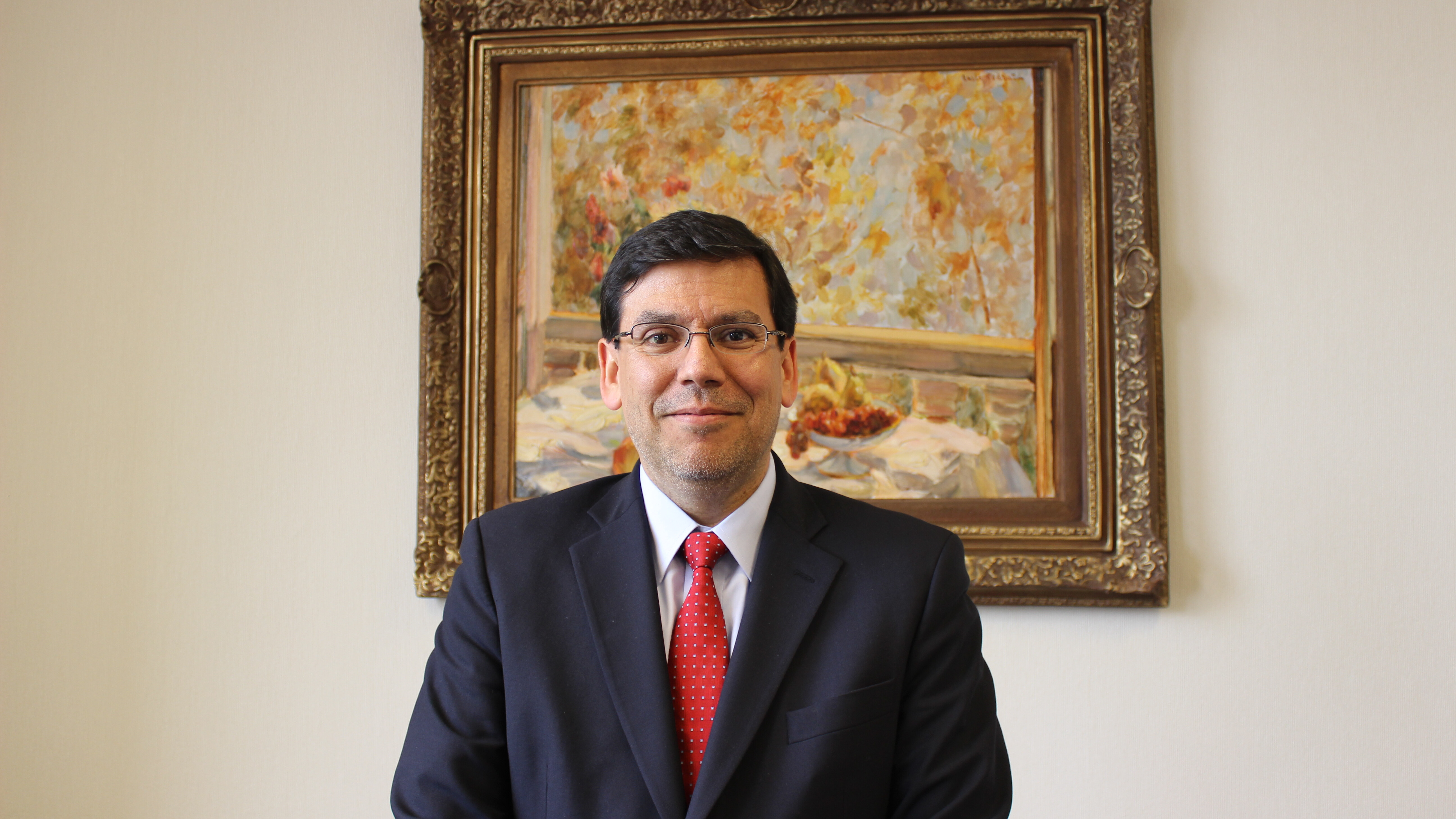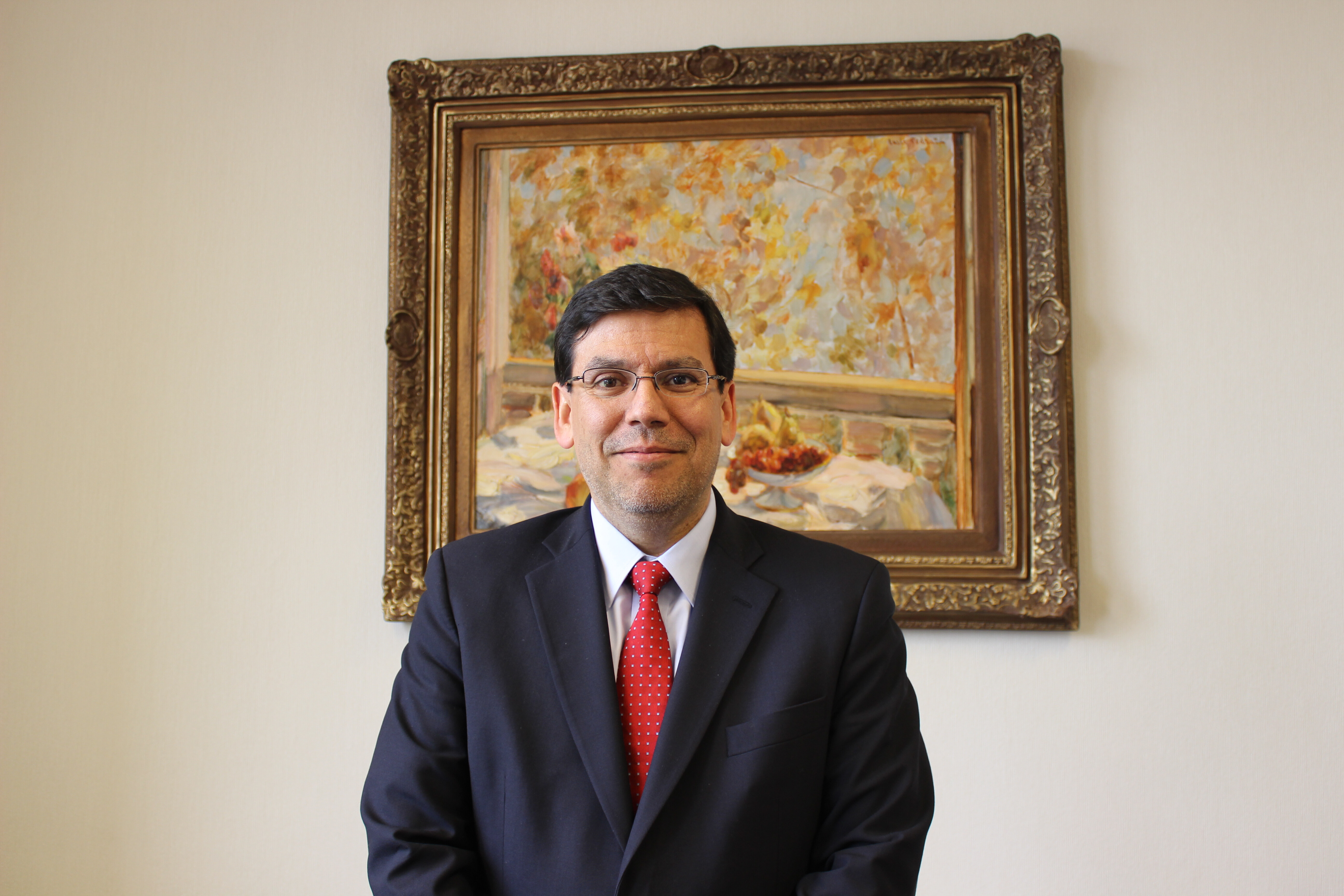Interview with Alberto Arenas, Chile's Minister of Finance
LatAm INVESTOR caught up with Chile's Minister of Finance, Alberto Arenas, to find out how his landmark economic reforms will impact investors...

Chile’s economy is in the middle of a slowdown; do you think that the debate about the fiscal reform has exacerbated the situation?
The first thing to recognise is that Chile’s economy is still growing – it’s just that the rate of that growth has dropped. Moreover if you look at the figures in detail you’ll see that the slowdown started more than 18 months ago at the beginning of 2013. For example the rate of growth in the fourth quarter of 2013 was 50% less than in the same quarter in 2012. That shows that this government inherited an economy that was slowing down so it’s hard to blame the performance on the reforms. Of course there are political reasons that explain why some people might want to link it to the reforms but really the main cause is the commodity cycle. Indeed we have seen slowing growth rates across Latin America, which shows that what’s happening can’t just be linked to Chile.
"This government inherited an economy that was slowing down so it’s hard to blame the performance on the reforms…"
Nonetheless it’s clear that economic growth is a clear part of this government’s aims. When you have an ambitious programme to challenge inequality you need to have strong economic growth. The only difference is that we want inclusive growth. Of course in the process of creating these reforms there are debates, which are necessary in a democracy but create noise that can have an effect. Perhaps the debate over the fiscal reform had a slight effect on growth but fortunately that reform has now been approved so the uncertainty will end.
Given that growth is key part of reforms, what is your plan as finance minister to help get growth going again?
We expect to see growth of around 2% this year, and in 2015 that should increase to between 3% and 4% so we are already seeing a recovery. But as a government we are more interested in the longer-term perspective. We’ve been looking at what we need to keep Chilean growth going for the next decade and we have identified productivity as a key theme.

The fact is that for the last ten years Chile’s productivity has more or less stagnated, so now we’re bringing in measures to address that. One key area is energy, where we are encouraging the development of lower-cost and environmentally friendly renewable energy. Also the Ministry of Economy is implementing a $1.5billion innovation agenda, which will help promote productivity growth in key industries. Then we also have the education reform which will help us boost our human capital. We are investing in these areas and supporting our efforts serious, progressive fiscal framework which will help fund some of these changes.
Where are opportunities for British investors?
Our public companies need to be capitalised to make them stronger so that they can help drive the economy. The biggest example of this is Codelco, which we are going to capitalise with $4billion. That’s a huge project worth around 1.6% of GDP so it will have a significant effect on the economy. The national oil company, ENAP, will also receive $400million, while the state development bank, BancoEstado, is receiving $450million. The idea of this financing is to make these companies more powerful so that they are better able to work with the private sector. Indeed an ‘alliance with the private sector’ is one of the key parts of our strategy. We’re planning to award billions of dollars worth of concessions which will create opportunities for international and local investors.
Another area of interest is the service sector. We’re keen to promote growth in this sector and it’s a place where British investors have a competitive advantage. I believe that Chile has the potential to be a hub for financial services thanks to the profundity of our capital markets and the strengths of our financial institutions. One part of that process will be that you will see more debt being issued to handle the recapitalisation of the public owned companies. I can’t give exact details at the moment but with Codelco, for example, we think that around $3billion will be funded by issuing debt. Our strong macroeconomic position means that we are in the position to do this and there is a lot of demand for Chilean debt. These new issues will help increase the foreign ownership of Chilean government-backed debt and help Santiago emerge as a regional financial services hub.
Chile is the richest economy in Latin America – can it become the region’s first developed country?
There is no doubt that Chile will become a rich, developed country by the end of this decade. But we don’t just need to pass this arithmetic barrier we also need to do it in an inclusive way. If you just look at GDP per capita it can be a question of how many people live in the country, what’s the GDP and work it out from there. But as a government we know that we need to build a more equal society – so our challenge is to grow while cutting inequality. According to the OECD Chile has the worst inequality in the organisation so it’s clear that our target is not just to be a developed country, but a developed equal country. And that’s why the fiscal reform is so important. It takes 3% of GDP in a progressive way and invests it in education. So it manages to fight inequality while also funding improvements that will boost growth in the future. Ultimately your investors should be pleased by these changes. After all reports from The World Bank and the OECD show that growth is more sustainable when it takes place in a more equal society because social conditions are more stable.